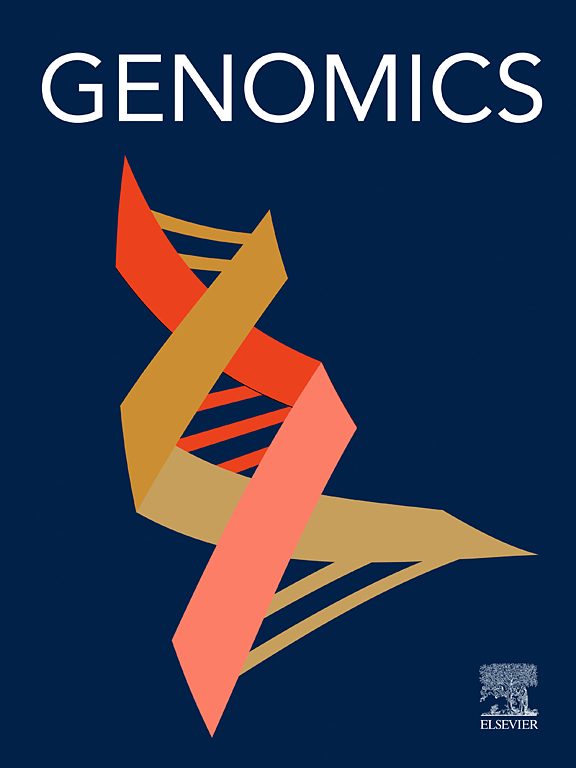单细胞和大体积RNA测序的综合分析确定了APOC1作为胆管癌G0/G1细胞周期阻滞的生物标志物和治疗靶点。
IF 3.4
2区 生物学
Q2 BIOTECHNOLOGY & APPLIED MICROBIOLOGY
引用次数: 0
摘要
胆管癌具有恶性程度高、易复发、对常规放化疗不敏感等特点。这种耐药性可能与癌症中处于G0/G1停滞期的细胞有关。处于G0/G1期的癌细胞对针对活跃分裂细胞的治疗具有耐药性,使其能够逃避常规辅助治疗并存活。当条件变得有利时,这些静止的细胞可以重新进入细胞周期,增殖并可能导致癌症复发。然而,用于鉴定胆管癌中G0/G1阻滞期细胞的生物标志物和诱导G0/G1阻滞的分子机制尚不清楚。在我们的研究中,我们首先通过大量RNA测序(bulkRNA-seq)确定了APOC1是胆管癌G0/G1期阻滞的特征基因。然后,我们使用单细胞RNA测序(scRNA-seq)进行细胞周期推断,并定位APOC1的表达峰以验证其活跃的细胞周期阶段。我们的实验表明,APOC1可以通过抑制Wnt/β-catenin信号通路诱导胆管癌细胞G0/G1期阻滞,从而抑制细胞增殖、迁移和侵袭。这表明,APOC1可能是胆管癌G0/G1期细胞的关键调控因子和重要的生物标志物。本文章由计算机程序翻译,如有差异,请以英文原文为准。
Integrated analysis of single-cell and bulk RNA sequencing identifies APOC1 as a biomarker and therapeutic target for G0/G1 cell cycle arrest in cholangiocarcinoma
Cholangiocarcinoma is characterized by its high malignancy, frequent recurrence and insensitivity to conventional radiotherapy and chemotherapy. This resistance may be associated with the presence of cells in the G0/G1 arrest phase within the cancer. Cancer cells in the G0/G1 phase are resistant to therapies targeting actively dividing cells, allowing them to evade conventional adjuvant treatments and survive. When conditions become favorable, these quiescent cells can re-enter the cell cycle, proliferate and potentially contribute to cancer recurrence. However, the biomarkers for identifying cells in the G0/G1 arrest phase within cholangiocarcinoma and the molecular mechanisms inducing G0/G1 arrest remain unclear. In our study, we first identified APOC1 as a characteristic gene for G0/G1 phase arrest in cholangiocarcinoma through bulk RNA sequencing (bulkRNA-seq). We then used single-cell RNA sequencing(scRNA-seq) for cell cycle inference and localized the expression peaks of APOC1 to verify its active cell cycle phase. Our experiments demonstrated that APOC1 can induce G0/G1 phase arrest in cholangiocarcinoma cells by inhibiting the Wnt/β-catenin signaling pathway, thereby suppressing cell proliferation, migration and invasion. This suggests that APOC1 may serve as a key regulatory factor and an important biomarker for cells in the G0/G1 phase of cholangiocarcinoma.
求助全文
通过发布文献求助,成功后即可免费获取论文全文。
去求助
来源期刊

Genomics
生物-生物工程与应用微生物
CiteScore
9.60
自引率
2.30%
发文量
260
审稿时长
60 days
期刊介绍:
Genomics is a forum for describing the development of genome-scale technologies and their application to all areas of biological investigation.
As a journal that has evolved with the field that carries its name, Genomics focuses on the development and application of cutting-edge methods, addressing fundamental questions with potential interest to a wide audience. Our aim is to publish the highest quality research and to provide authors with rapid, fair and accurate review and publication of manuscripts falling within our scope.
 求助内容:
求助内容: 应助结果提醒方式:
应助结果提醒方式:


